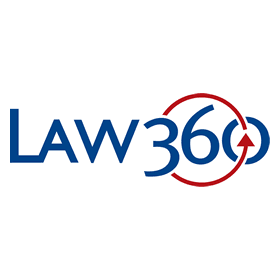
A group of companies behind a Miami hotel project urged a Florida federal judge Thursday to shield them from allegations that they helped scam Chinese investors and dashed their chances of winning a green card through the EB-5 visa program.
The companies, referred to as the Greystone entities after the hotel project, claimed the investors’ lawsuit “lumped together” the investors and left out any individualized details, slamming the 129- page complaint as containing “repetitive and conclusory allegations.”
“Plaintiffs’ strategy is to accuse all persons and entities involved in the transaction with a conspiracy to cast a wide liability net. However, such a wide-ranging conspiracy is not plausible,” the Greystone entities argued.
The companies want out of a lawsuit accusing them of duping the foreign investors into sinking $500,000 each into a Florida hotel development project, which the investors then lost after Joseph Walsh, the head of an EB-5 regional center, allegedly transferred the investors’ funds earmarked for the hotel into personal accounts.
The suit alleges that the investors not only lost their money but also their chances at obtaining U.S. permanent residency through the EB-5 visa program, which allows foreign investors who invest in U.S. enterprises that create American jobs to live in the U.S.
Previously, EB-5 hopefuls had to invest at least $500,000 in a low employment area to qualify, but under new regulations that took effect in November, the minimum investment amount in those targeted areas jumped to $900,000.
According to the lawsuit, filed last year and updated in December, the Greystone entities misrepresented key details of the fund to investors, including how the money would be spent and the loan conditions. Walsh allegedly had no intention of holding the investors’ money in escrow but instead had deposited the funds into a checking account labeled as “escrow,” the suit says.
The investors claimed that the people and entities behind the deal, including the managers of the Greystone limited partnership and EB-5 fund, helped Walsh misappropriate funds or at least should have known about his misconduct.
In Thursday’s motion, however, the companies claimed that there was no evidence that the Greystone entities knew about any fake escrow account nor about Walsh’ alleged embezzlement.
The suit also claims that PNC Bank, which housed the allegedly fake escrow account, was part of the alleged conspiracy. PNC asked the federal court in December to toss the lawsuit, arguing that the suit’s claims are “woefully insufficient” and are not enough to show that anyone at PNC knew about
Walsh’s misconduct.
Stephen Mendelsohn of Greenberg Traurig LLP, an attorney for the Greystone entities, said in a statement to Law360 on Thursday that his clients are “hopeful” that the court will dismiss the suit against them. He added that his clients “did not receive any monies from Greystone EB-5 LLLP, the entity into which plaintiffs allegedly invested.”
Jordan A. Shaw of Zebersky Payne LLP, an attorney for the Chinese investors, told Law360 on Thursday, however, that he’s “confident” his suit is detailed enough to survive the Greystone companies’ motion at this stage.
He also slammed the companies for what he described as a “sophisticated” but “blatant” fraud scheme that has left his clients in the dust.
“They relied on what these defendants said, they relied on the system, the process, the program, and now they’re sitting in their country without residency and without their money, wondering how this happened,” Shaw said.
Walsh is also facing a similar suit in Florida’s Southern District, accusing him and some of the same entities of defrauding foreign investors who had sunk capital into a different Florida hotel project.
That suit, which is ongoing, mostly survived a motion to dismiss in 2017.
The Greystone defendants are represented by Stephen A. Mendelsohn of Greenberg Traurig LLP.
The Chinese investors are represented by Jordan A. Shaw and Steffani M. Russo of Zebersky Payne LLP and Kevin Qi of SMS Law Group.
PNC is represented by Peter D. Hardy and Aliza Karetnick of Ballard Spahr LLP and Nina Stillman Mandel of Mandel & Mandel LLP.
The case is Feng et al v. Walsh et al., case number 1:19-cv-24138, in the U.S. District Court for the Southern District of Florida.
–Editing by Gemma Horowitz.
Original Article published at Law360 on January 2, 2020 by Suzanne Monyak





